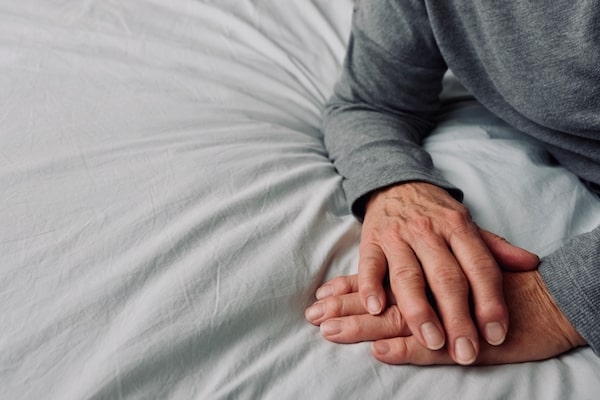As the weather starts to cool down, people often tell us they start to experience more joint pain.
Studies show that colder weather, precipitation, and subsequent decrease in barometric pressure is correlated in an increase in joint pain for those with osteoarthritis and rheumatoid arthritis.
If you’re one of the many people that experience this increase in symptoms over the winter months, consider trying one or a few of these five tips:

- 1Start your day with heat!
Using a heating pad, taking a warm shower or bath can help ease joint stiffness before you start your day to day activities. - 2Enjoy pain free movement.
Walking inside the neighbourhood shopping center, riding a stationary bike at a comfortable speed, or signing up for a swimming class are all great options for people to keep moving and keep the joints happy. - 3Dress according to the weather.
Layer your clothing when going outdoors making sure to keep all your arthritis joints warm (especially knees, hips and fingers/toes). Always keep a pair of mittens and extra layers in the car in case you need them on an outing. - 4Employ help for snow removal.
Living in Alberta often means lots of snow for many months over the winter and these activities can be hard on joints on top of enduring cold weather. It can be helpful to have someone do your snow removal for you. - 5Prevent falls.
Wearing appropriate footwear and making sure your walk ways are clear and putting down sand or salt can prevent falls, injuries and even fractures.
If doing the above isn’t enough to get relief with your joint pain, contact one of our physiotherapists for assessment and further treatment of your arthritis.
References:
- Dorleijn, D., et al. (2014, April). Associations between weather conditions and clinical symptoms in patients with hip osteoarthritis: A 2-year cohort study. Pain. 155(4), 808–813.2.
- McAlindon, T., et al. (2007, May). Changes in Barometric Pressure and Ambient Temperature Influence Osteoarthritis Pain. The American Journal of Medicine, 120 (5), 429 – 434.
